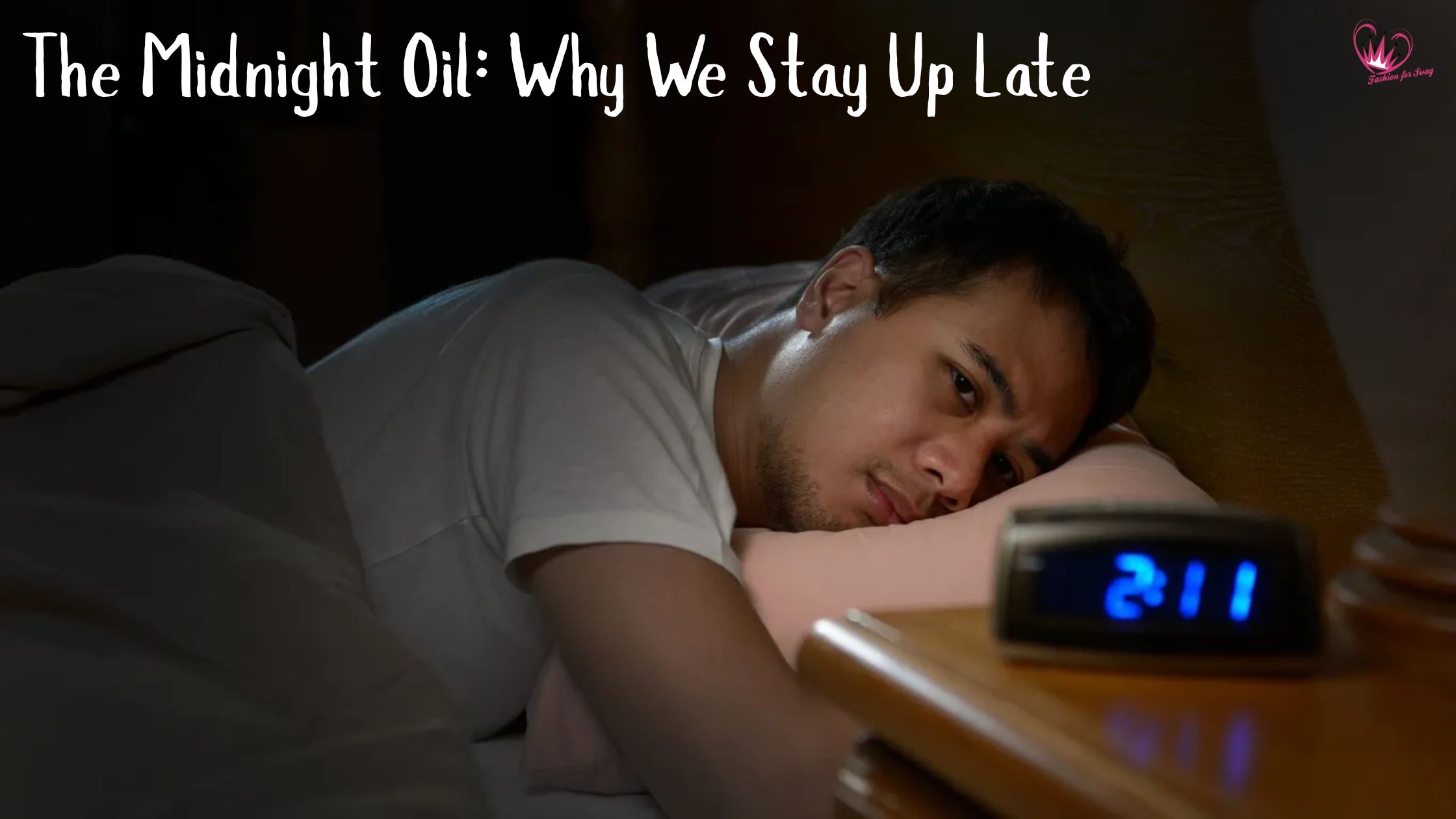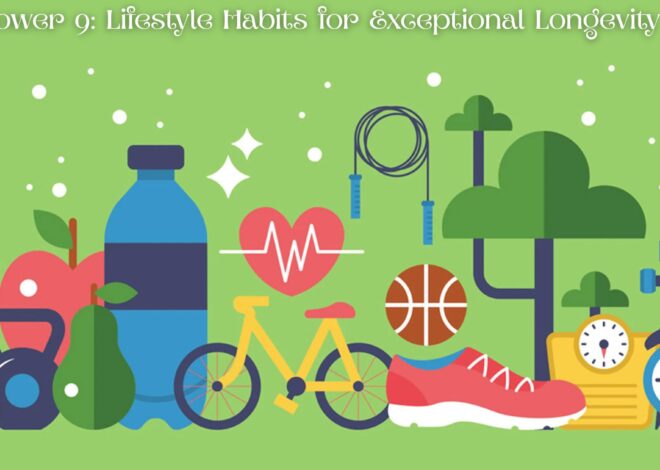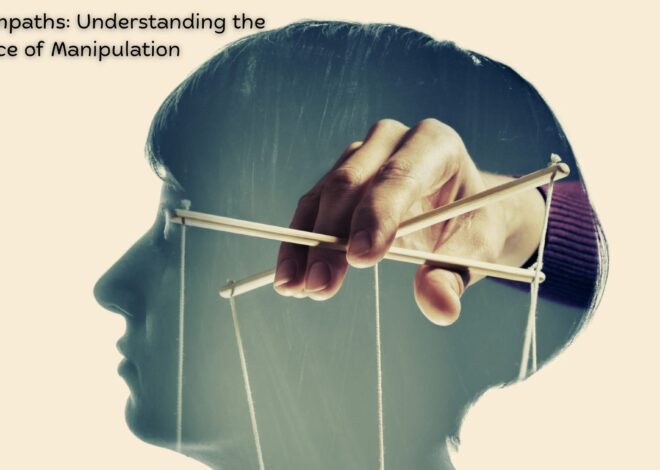
The Midnight Oil: Why We Stay Up Late
The brightness of a screen, the calm of a refrigerator, the deep peace of the night – for millions of people, this is the environment in which their most productive or individual hours are spent. Late living task, once Bohemian lifestyle or a Cramming student signal, has become a wider, almost generalized, part of modern life. We burn it “midnight oil,” a phrase that romantic a behavior that is often a complex mixture of choice, need and biology. But why do we do this? What does a few extra hours of work, creation, or solitude, what does it drive us to trade the whole night’s sleep? The answer lies in an attractive difference of biological rhythm, psychological requirements and 24/7 world demands.
This blog is deeply in the reasons that we sacrifice our sleep, discover science, psychology and social pressures that we wake up for a long time after the sun is set.
1. The Biology of Being a Night Owl: Chronotypes and Circadian Rhythms
For many people, staying late is not just an option; This is a fundamental part of their biological makeup. The concept of chronotypes explains this. Simply put, a chronotype is a person’s natural inclination to sleep at a certain time. We often think of people as either “Larks” (early rains) or “owl” (late sleepers), but it is more than a spectrum.
- Genetic tendency: Your chronology is largely determined by your genes. Researchers have identified many genes, including “clock” genes, which affect our circadian rhythm-a heaven-biological clock that controls our sleeping cycle over a 24-hour period. For the night owls, their internal clock is simply set in the latter program. Sleep hormone in their body does not begin to produce melatonin, until a Lark will, it becomes difficult to sleep before midnight.
- Delayed Sleep Phase Syndrome (DSPS): For some, the trend of night owls is so clear that it becomes a clinical position. DSPS is a circadian Rhythm Sleep Disorder where a person’s sleepy cycle is being delayed significantly compared to social norms. Individuals with DSP feel almost impossible to sleep on “normal” time and, if left on their own equipment, will sleep much later. While it is a disorder, it highlights powerful organic drivers that can keep people late.
Therefore, if you feel the most alert and creative at 11 o’clock at night, while your friends are decreasing, it is not a moral unsuccessful; This can only be your biology.
2. The Psychology of the Midnight Hour: Solitude, Creativity, and Freedom
Beyond biology, a powerful psychological bridge draws many people for night peace. This time often provides a unique psychological space that is absent during the day.
- Fascination of solitude and calm: Day time is a cacophony of interruptions – emails, phone calls, social media notifications and general discussion of life. The night saves this noise. For introverted, or anyone craving for a moment of peace is a sanctuary at midnight. This uninterrupted time is invaluable to deep thinking, focused work, or simply disintegration.
- Creativity burst: Many artists, writers, and thinkers swear by their nocturnal habits. The principle is that as day works fade and relaxes logical, left-brain, the right-brain, responsible for creative and easy thought, is free to flourish. The quiet of the night can be a powerful collection, promoting a flow position where thoughts emerge without a time limit or pressure of the world’s distraction.
- “Reverse gold laxity” phenomenon: This rapidly describes the task of living late to regain the spirit of the normal word individual time. In a world where work, work, and family responsibilities consume the whole day, only at the same time people feel that they really have to take themselves to late night. They know they should sleep, but the desire to see another episode, read some more pages, or simply scroll through their phone, removes the need for rest. It is a form of rebellion against a schedule that seems heavier and free from personal freedom.
- Search for self-reform: For many people, night is a time for individual projects that feel impossible to fit in the day. It can learn a new language, take an online course, or pursuing a side of a side. This drive often lies in the belief that it would be a better future than late night efforts, whether it means a promotion, a new career, or more life.
3. The Societal Pressures: The 24/7 Economy and The Digital World
Our modern world is not created for 9 to 5 schedules. The demands of the broader nature of a global, always and technology have changed our relations fundamentally over time.
- Global Marketplace: Scattered in different time areas with teams and customers, late working becomes a logistic requirement. A meeting with a colleague in New York may be a regular evening phenomenon for someone in Delhi, and cooperation with a team in London can mean late night email for a designer in Tokyo. This mutual relationship means that working day does not end at 5 pm.
- Gig Economy and Side Hustles: The Rise of the Gig Economy has given more people flexibility to determine their own hours, but it has also created a culture of continuous work. Many people do one day job and then dedicate freelance work or a side business to complement their income on their evening and nights. Financial incentive to stay late can be a powerful motivator.
- Digital Rabbit Hole: The Internet has made it easier to lose the track of time. A quick investigation of social media can turn into an hour-long scroll. A single YouTube video can give rise to a string of late-night Bing. The infinite stream of materials is especially designed to keep us busy, and in the calm form of the night, with low competitive demands, it is very easy to fall down from the digital rabbit hole.
- Culture of busyness: There is a subtle but broad social pressure for being productive and “Udham”. Living late can be seen as a sign of dedication and ambition, a badge of respect in a culture that attains importance to continuous work and achievement. This can create a false sense of obligation, so that people feel guilty of going to bed quickly when they can “move forward.”
The Consequences: The High Price of “The Midnight Oil”
While there are reasons, both biological and psychological, to stay late, long -term results are important and are often harmful to our health. Lack of old sleep is not a badge of respect; This is a serious health issue.
- Physical Health Risk: The frequent sleep decrease is associated with a host of health problems, which increases the risk of heart disease, diabetes, obesity and a weak immune system. It also disrupts cognitive function, causing concentration, poor memory and decreased reaction time.
- Mental health effects: The relationship between sleep and mental health is undisputed. Lack of sleep can increase symptoms of anxiety and depression, and can make emotions difficult to regulate. People who live late due to stress or anxiety can create a vicious cycle, where lack of sleep is very bad that keeps them awake.
- Taking impaired decisions: When we get tired, our brain’s prefrontal cortex-rolling ideas and impulse controls are responsible for control. This can lead to poor decision making, increase in irritability and taking risks.
- Low creativity and productivity (defending): While night creativity can feel like a time, the lack of chronic sleep eventually reduces it. The brain requires sleep to process information and consolidate memories; both are important for creative problems-solution. While a single can create a great idea of late night, the frequent sleep decrease will eventually be an obstruction, not help, long -term productivity and creativity.
Conclusion
Midnight Hour attraction is a powerful force, inspired by a complex mix of our genes, our psychological needs and the demands of our modern world. For some, it is a biological imperative. For others, it is a moment of freedom. And for many people, it is a requirement arising from the pressure of 24/7 society. Understanding why we stay late is the first step towards having a healthy relationship with our sleep. The challenge is not to force ourselves to do something that we are not, but to find a balance between our natural inclination and our health and welfare demands. By recognizing the forces in the game, we can make a more informed option about how we spend our nights and in doing so, recover the rest that is a healthy, productive and very important to complete life.



